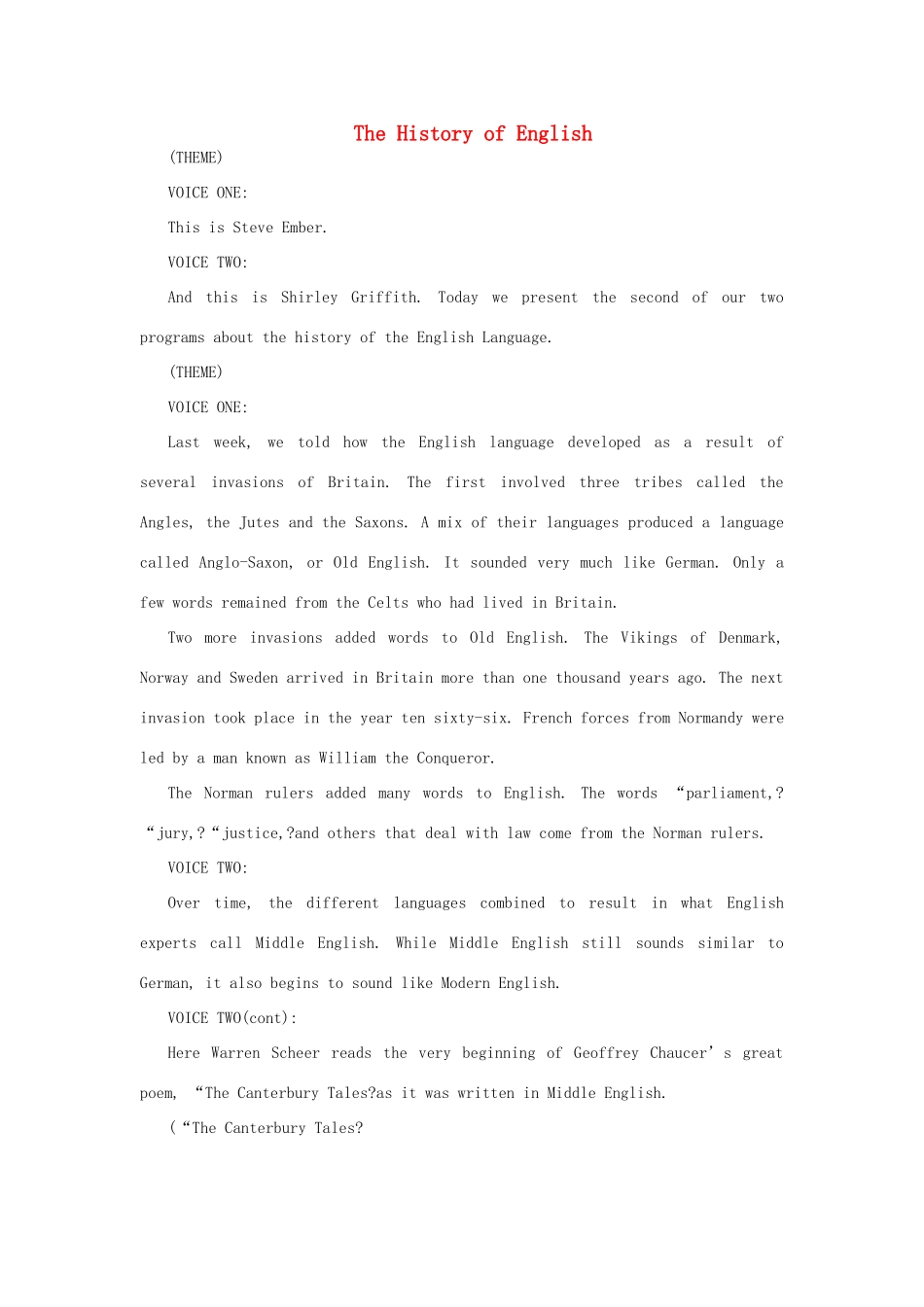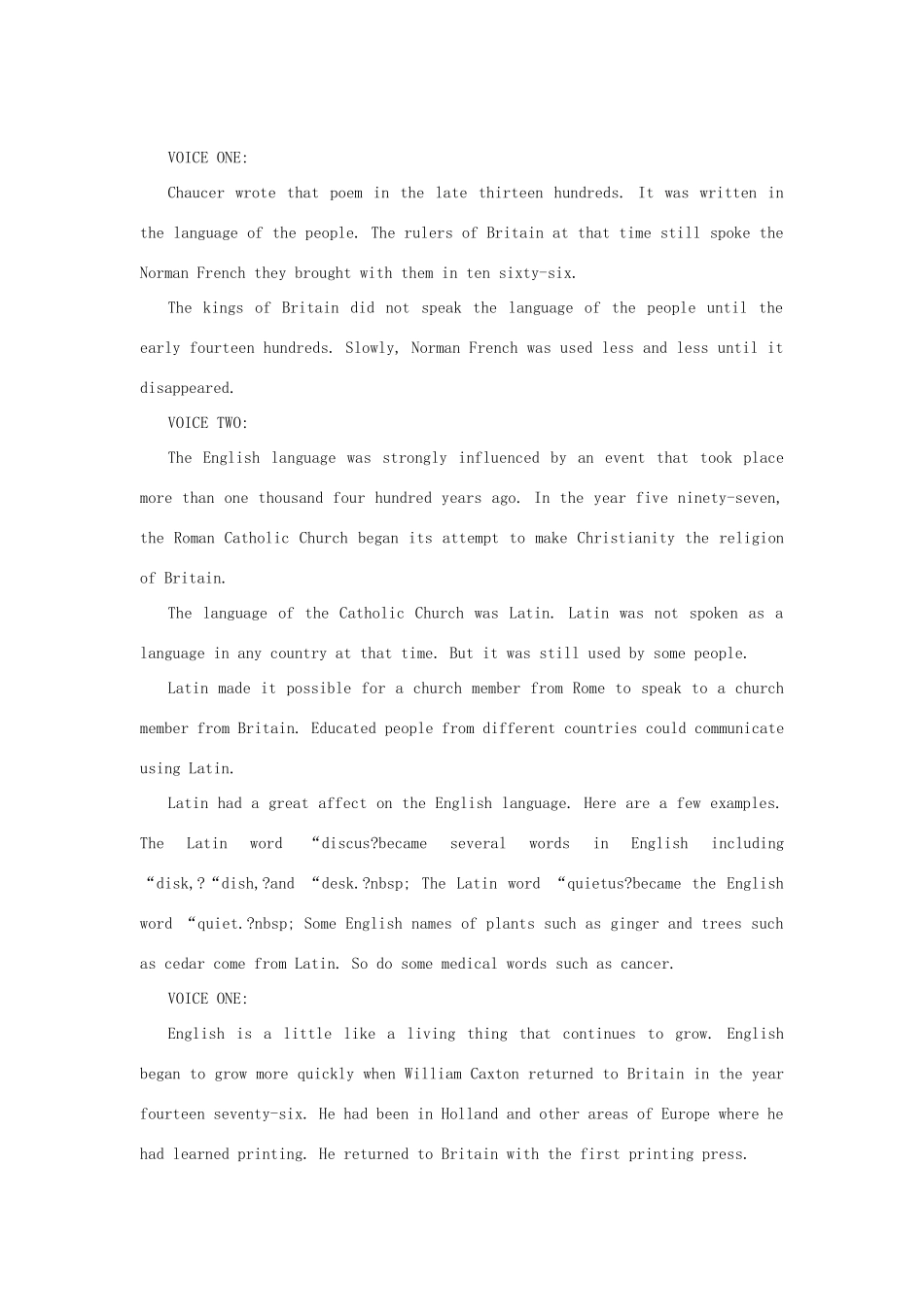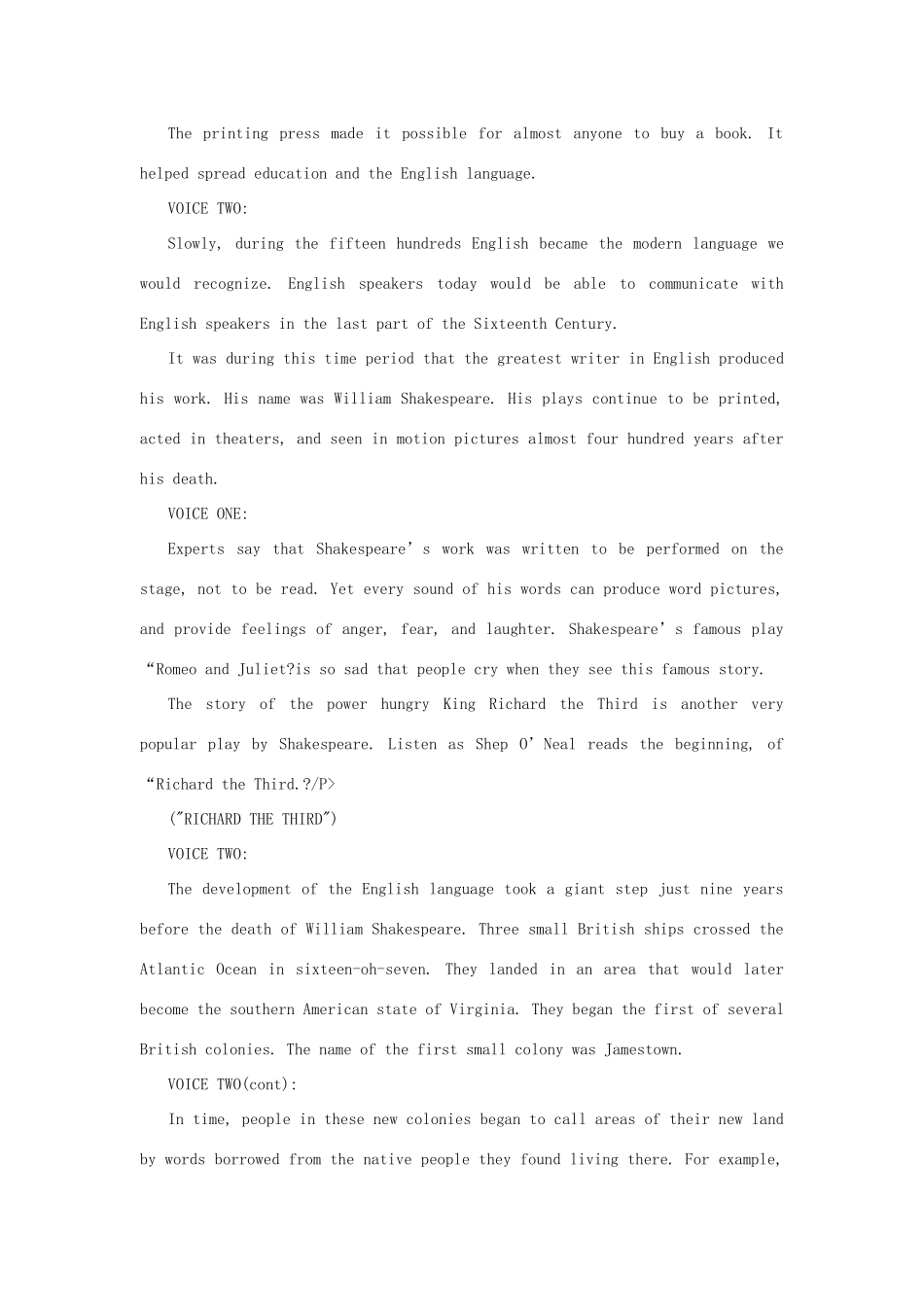The History of English(THEME) VOICE ONE: This is Steve Ember. VOICE TWO: And this is Shirley Griffith. Today we present the second of our two programs about the history of the English Language. (THEME) VOICE ONE: Last week, we told how the English language developed as a result of several invasions of Britain. The first involved three tribes called the Angles, the Jutes and the Saxons. A mix of their languages produced a language called Anglo-Saxon, or Old English. It sounded very much like German. Only a few words remained from the Celts who had lived in Britain. Two more invasions added words to Old English. The Vikings of Denmark, Norway and Sweden arrived in Britain more than one thousand years ago. The next invasion took place in the year ten sixty-six. French forces from Normandy were led by a man known as William the Conqueror. The Norman rulers added many words to English. The words “parliament,? “jury,?“justice,?and others that deal with law come from the Norman rulers. VOICE TWO: Over time, the different languages combined to result in what English experts call Middle English. While Middle English still sounds similar to German, it also begins to sound like Modern English. VOICE TWO(cont): Here Warren Scheer reads the very beginning of Geoffrey Chaucer’s great poem, “The Canterbury Tales?as it was written in Middle English. (“The Canterbury Tales? VOICE ONE: Chaucer wrote that poem in the late thirteen hundreds. It was written in the language of the people. The rulers of Britain at that time still spoke the Norman French they brought with them in ten sixty-six. The kings of Britain did not speak the language of the people until the early fourteen hundreds. Slowly, Norm...


